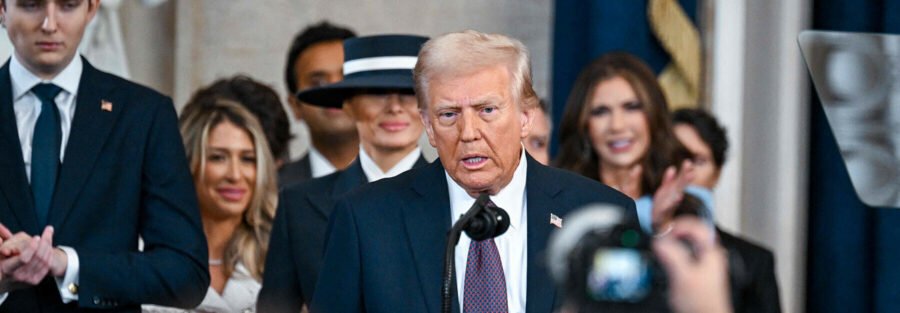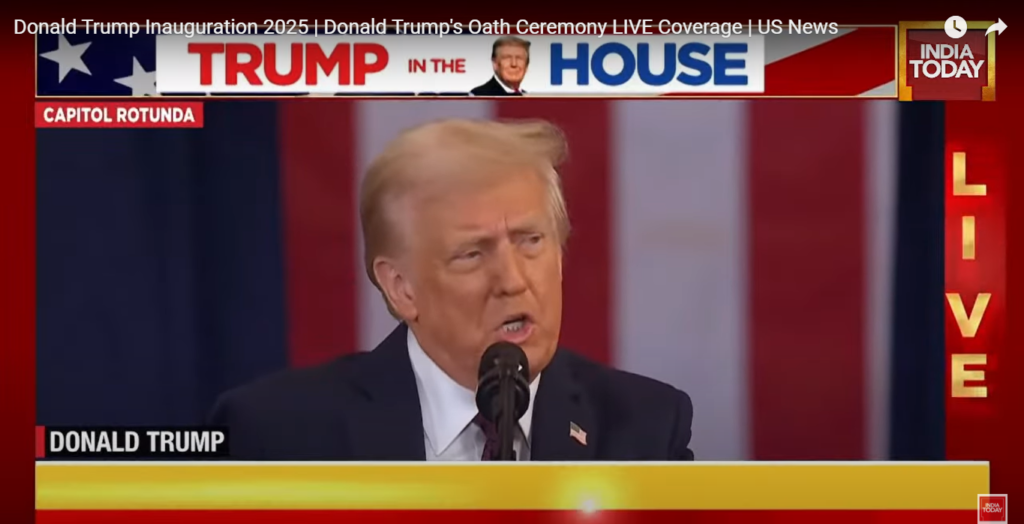In a dramatic conclusion to his presidency, Democrat Joe Biden granted a series of “preemptive pardons” to individuals he believed could face political persecution under the incoming Trump administration. Among those pardoned were his brothers, renowned immunologist Dr. Anthony Fauci, General Mark Milley, and members of the House Select Committee on the January 6 attack, including former Congresswoman Liz Cheney.
As severe Arctic weather swept through Washington, D.C., Donald Trump opted to hold his inauguration ceremony indoors at the Capitol Rotunda, with a gathering of dignitaries and family members. This marked a historic departure from tradition, as Trump’s inauguration was the first to feature foreign leaders, including far-right figures such as Argentina’s Javier Milei and Italy’s Giorgia Meloni.
In his inaugural address, Trump delivered a scathing critique of the “radical and corrupt establishment” of the previous administration, accusing it of “weaponizing” the justice system. He also outlined an ambitious and controversial vision for the nation’s future, including a call to reclaim the Panama Canal from Panama to expand U.S. territory.
The Republican leader announced his intent to declare a state of emergency at the southern border with Mexico and designate drug-trafficking cartels as “terrorists” in order to expel them from the country. Additionally, Trump confirmed the United States’ withdrawal from the Paris Agreement for a second time, signaling a continued departure from global climate change efforts.
Trump’s oath-taking marked a significant moment as he overcame a tumultuous past four years—including impeachments, indictments, and assassination attempts—to reclaim the presidency. He pledged to address a “crisis of trust” in the nation and restore sovereignty, safety, and justice. To that end, he previewed a series of executive orders targeting immigration and border security, such as reintroducing the “Remain in Mexico” policy, and halting diversity, equity, and inclusion (DEI) initiatives in federal agencies.
The incoming administration also outlined an aggressive energy policy, focused on expanding domestic oil and gas production by rolling back Biden-era climate regulations. Trump’s agenda signals a sharp policy shift and aims to undo much of the environmental and social progress achieved during Joe Biden’s presidency.
Trump’s return to office will reignite his “America First” foreign policy. As the Russia-Ukraine conflict approaches its third year and tensions persist in the Middle East, Trump’s global strategies will face scrutiny. On his first day in office, he is expected to lift the ban on TikTok and tackle contentious issues like ending birthright citizenship and declaring a national emergency at the southern border.
With his political comeback now complete, Trump’s second term is set to be marked by aggressive executive actions, conservative-driven policies, and a focus on dismantling the legacy of the Biden administration. The stage is set for a deeply divided political landscape as Democrats determine their strategy in response to a reinvigorated Trump White House.
Credits: Indian Express and Al-jazeera






